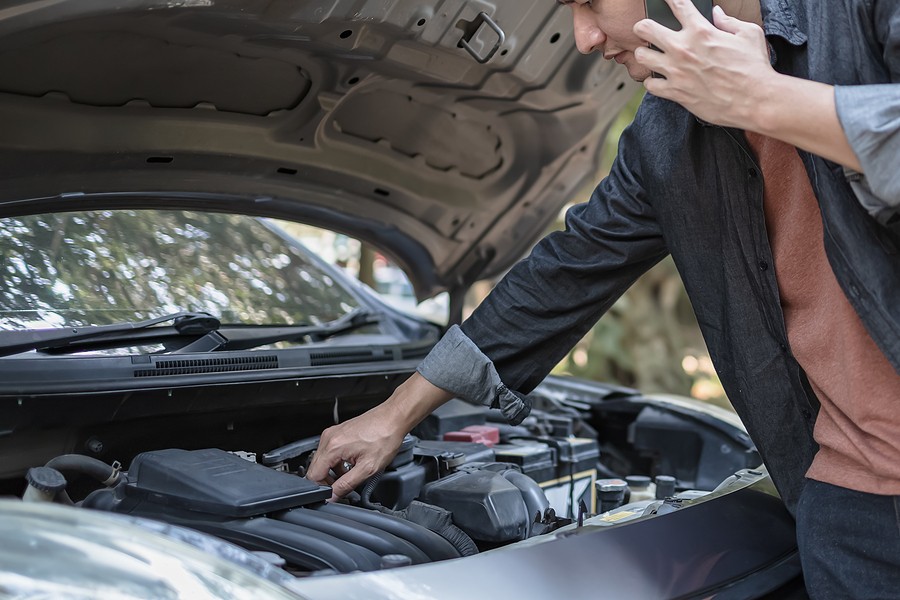The transmission is one of the most important parts of your car. Not only does it convert power from the engine to drive wheels, but it also helps you get better gas mileage by shifting gears at just the right time.
With so many people owning cars these days, more and more are experiencing problems with their transmission, ranging in severity from a minor inconvenience to an expensive repair bill.
Fortunately, there are some steps you can take before taking your car into a shop for repairs that will help you avoid costly mistakes or unnecessary expenses.
In this article, we’ll go over what those steps are and troubleshoot common symptoms and how much they cost to fix if left unattended for too long.

What is a transmission, and what does it do?
First things first: a car’s transmission sits between the engine and the drive wheels.
It consists of a series of gears that transfer power from the engine to propel your car forward or backward and increase or decrease speed.
When it comes to going up hills, the gear system enables you to shift into lower gears so the car can maintain a steady speed without using as much gas.
Meanwhile, when it’s time to go downhill, your transmission will shift back into a higher gear to reduce the strain on the engine and avoid wearing down on brakes.
In addition to those benefits, transmissions also work as a cooling system for the engine.
While it’s not their main priority, transmissions also allow you to change the speed of your car for optimum performance.
For instance, accelerating from a stop sign requires higher gear, whereas cruising on the highway requires lower.
Even more importantly, your transmission allows you to save gas money by efficiently shifting gears at just the right time and in the right order.
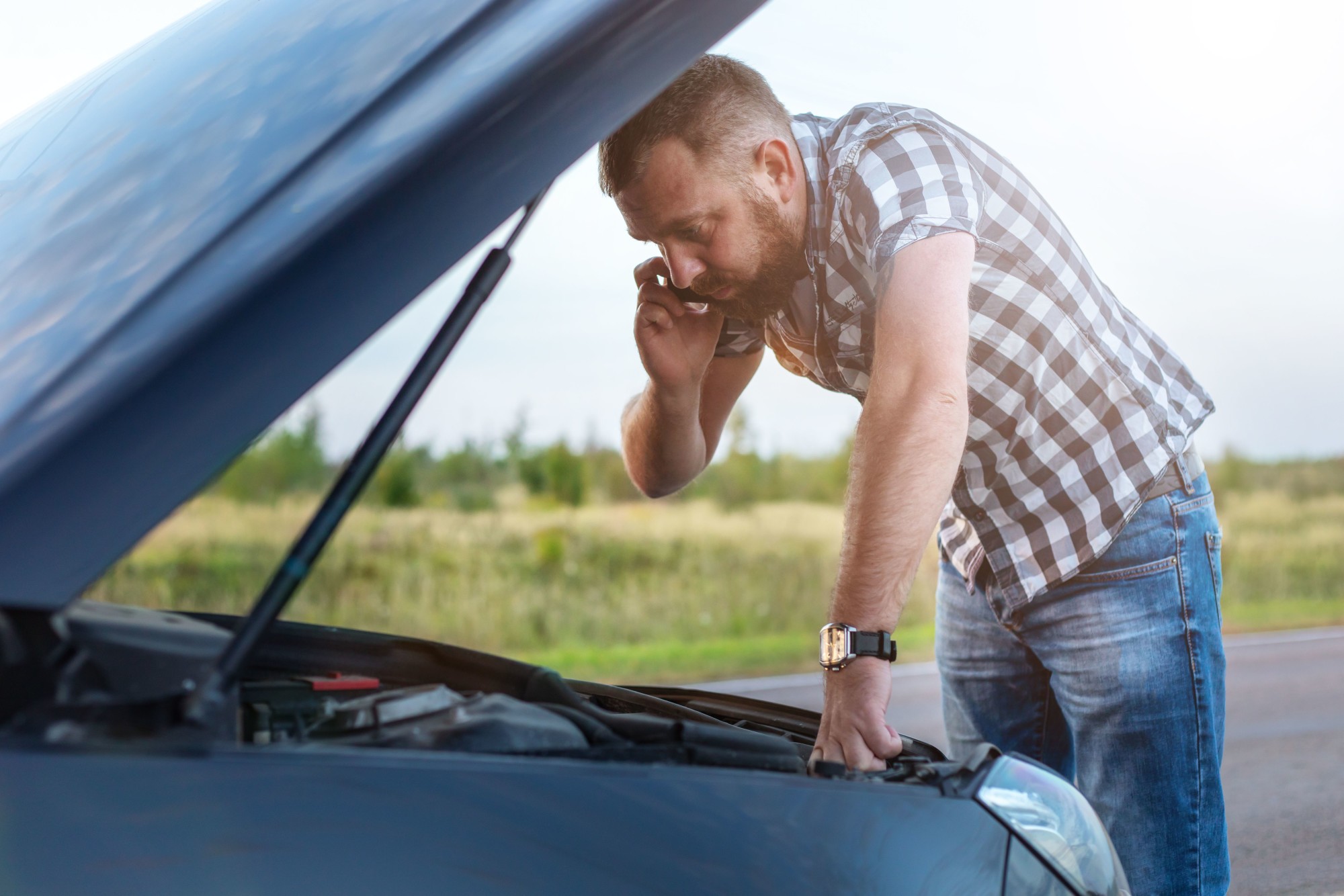
Transmission Problem With Overdrive: Troubleshoot, Repairs & Costs
Learning about the main transmission problems with overdrive helps prevent the issue and become more careful about your driving habits. Let's take a closer look at the ten most common transmission problems with overdrive:
#1. Harsh shifting
When you find that it takes your car longer to shift gears or that the change is more abrupt than usual, this could be a sign of transmission problems with overdrive.
Causes: This issue is typically linked to the torque converter, which is responsible for matching engine speed with wheel speed so you can shift gears.
When the torque converter isn't working properly, it makes for a harsh ride that often jolts passengers around.
Troubleshoot: If you notice this problem, it's best to take your car in for an inspection as soon as possible.
Fix: A mechanic will first examine your car's transmission fluid to see whether there's a problem. If there isn't, it may be that the torque converter needs to be replaced. Cost: This might cost anywhere from $1,000 to over $2,200.
#2. Slipping gears
Slipping gears happens when your car's transmission can't hold a gear.
This typically leads to jerking motions as the engine speed is mismatched with wheel speed.
Causes: There are several reasons why this problem arises, starting with an actual mechanical malfunction or wear and tear to simple oversights on your part.
For example, if you often leave your car idling for long periods, it may develop slippage because the transmission fluid heats up during that time.
Troubleshoot: If you notice slippage, first check whether there's enough transmission fluid in the reservoir before taking further action. You can also see whether the issue was linked to overheating by checking for warning signs like smoke coming out of the exhaust.
Fix: If your transmission fluid is low, top it off immediately before adding more fluid if necessary. Meanwhile, an expert will inspect whether there are any leaks in your car or other problems that could cause slippage.
Cost: These repairs typically cost between $900 and over $2,000.
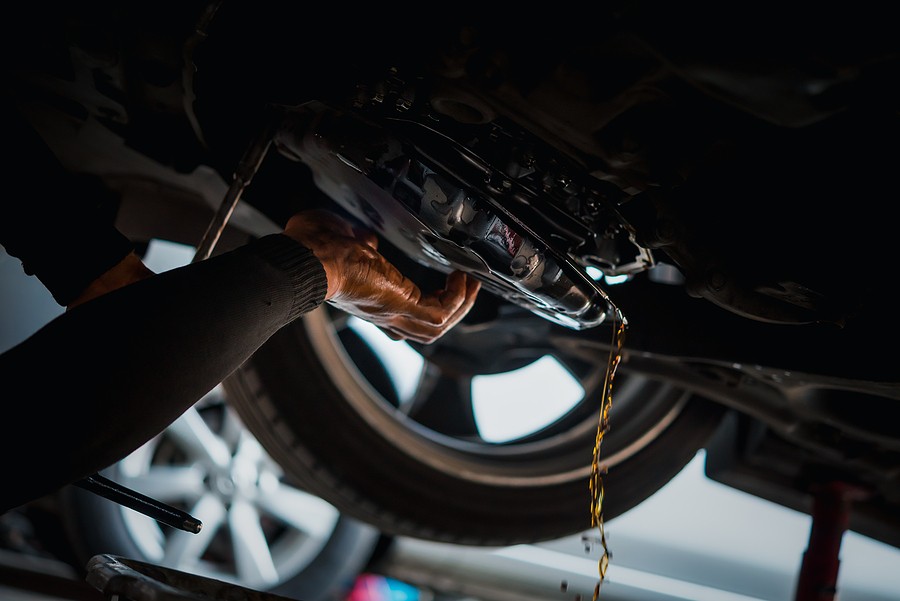
#3. Rough shifting
When your gears don't shift smoothly when you're driving at slower speeds, this typically means the car isn't in its optimal range for gear shifting.
The most common causes include not having enough torque to power higher gears (meaning the car goes too slowly) and not maintaining speed in lower gears (meaning it's too fast for what you're trying to do).
Causes: If you often drive at a slower speed, the problem could indicate an issue with your transmission fluid being too hot.
If this is the case, it's probably because there isn't enough contact between your car and the road. In such cases, the engine overheats quickly and needs to shift into higher gears as a result.
Troubleshoot: The easiest way to solve this problem is by stepping on the gas pedal every five seconds or so until you notice that shifting has become smoother. You can also check whether your car allows manual shifting (in which case you need to make sure you're in higher gears) and whether there's enough fluid in your transmission (if not, top it off before adding more).
Fix: If you notice this issue, it's best to take your car in for inspection as soon as possible.
The good news is that most of the time, the problem can be fixed with an oil change or by simply getting rid of excess dirt around the seals.
Cost: Here again, maintenance costs between $400 and over $1,300.
#4. Jerking motions when accelerating
This particular problem often goes hand-in-hand with harsh shifting and slipping gears because it indicates a mechanical error somewhere along the line.
Causes: This can be linked to several things starting with low transmission fluid or no fluid at all (which makes for insufficient lubrication) to a broken flex plate (which prevents your engine from powering your transmission).
Troubleshoot: If you notice jerking motions, the easiest way to fix them is by checking whether there are any leaks in your car or if it's being overworked by driving too fast for the conditions.
You can also take note of warning signs like smoke coming out of the exhaust and keep an eye out for trouble codes that explain exactly what's wrong with the vehicle.
Fix: The fix here typically includes oil changes, fluid top-offs, and inspections that document any damage done to your car's transmission system.
Costs: These repairs typically cost anywhere between $500 and over $1,500.
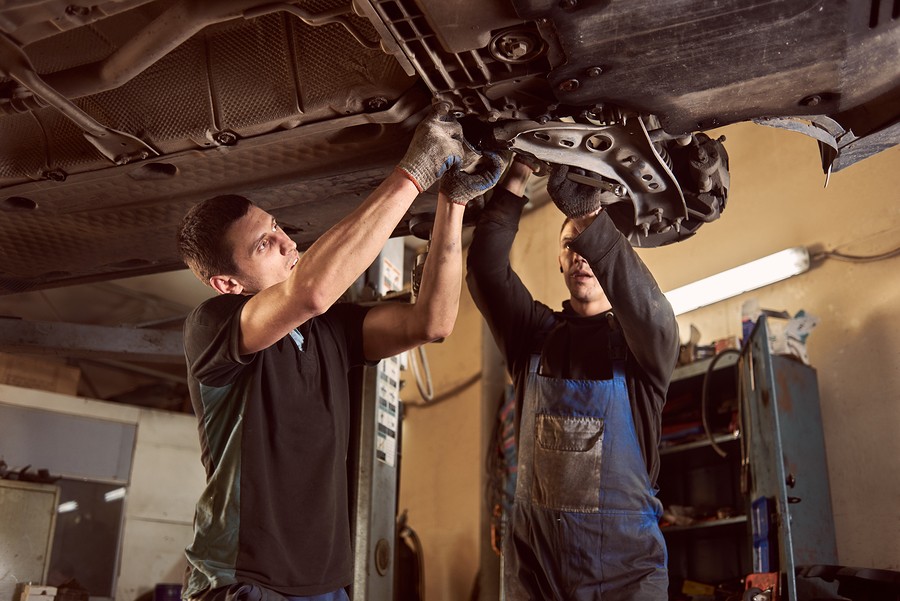
#5. Transmission slips into neutral without warning
When this problem occurs, you typically find yourself unable to shift into gear.
Causes: This issue often stems from a faulty shift solenoid, an electrical component that controls your car's gears.
A broken shift solenoid will eventually fail to send the correct signal to gear components.
Other causes can include a defective shift cable or a break in the transmission fluid's pressurized lines that prevents the system from performing correctly.
Troubleshoot: If you're confident there isn't anything wrong with your brake pedal and shift cables, the best way to troubleshoot this issue is by looking at your car's wiring diagrams before calling a professional mechanic. You can also ask for help from a friend who's more experienced with car troubleshooting.
Fix: Bring your car in for repair if you find evidence that the problem is due to a faulty electrical component.
There's also possibly too much dirt in the transmission system, causing it to work incorrectly. In this case, an oil change and fluid top-off should solve the problem quickly and easily.
Cost: These repairs usually cost somewhere between $300 and $1,500.
#6. Transmission fluid is black and has an unpleasant odor
Black transmission fluid that smells bad indicates a problem with your car's transmission system as a whole.
Causes: This could be the result of the following: – A damaged or broken gasket that's allowing exhaust gases to enter the cabin. – Dirty transmission fluid that's been contaminated by water and other impurities.
Troubleshoot: In this case, your best bet is to check whether there are any leaks around your car and whether your transmission fluid level has dropped.
If you notice a pool of oil under your vehicle or you're constantly refilling your transmission fluid, it's time to bring the car in for an inspection.
Fix: If you've ruled out any issues with your engine oil or power steering system, you need to have the problem inspected by a professional.
Costs: These repairs can cost anywhere between $400 and $1,300, depending on the actual cause of the problem.
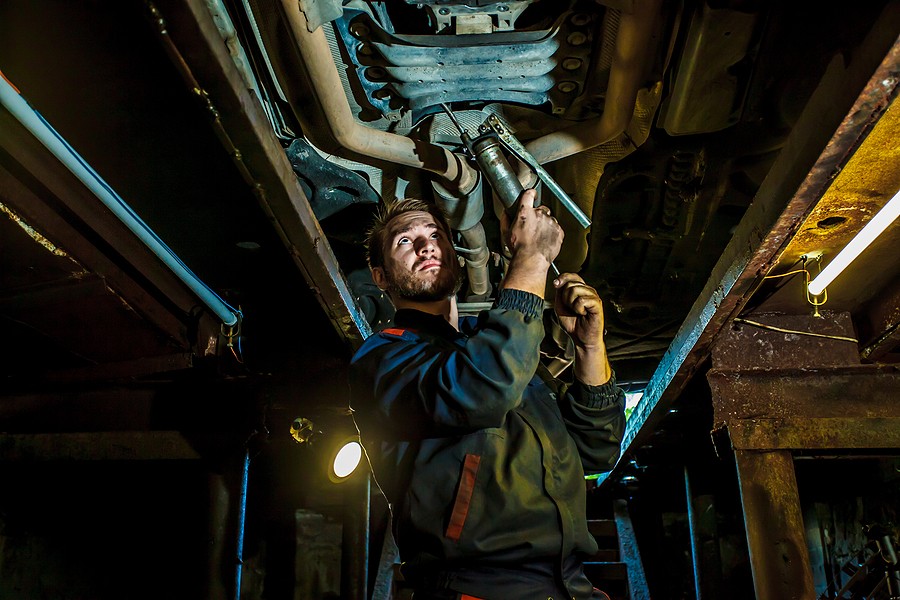
#7. Transmission makes a whining noise when accelerating from a stop
This particular sound is often accompanied by gear slipping and jerking motions that seemingly lack any power to force your car into reverse or drive.
Causes: Typically, this kind of issue can be linked to worn gears that only appear once every single metal piece has moved around enough with wear and tear over time.
In addition, problems with shift valves allow fluid pressures to drop, which leads to overheating and more damage in the long run if left untreated.
Troubleshoot: In most cases, you should notice smoke coming out of your exhaust pipe, which indicates there's an issue somewhere along the line.
If you can't see any smoke and you're still experiencing problems, it's time to bring the car in so a professional mechanic can inspect your transmission system.
Fix: The fix for this problem varies depending on how soon it's caught. In some cases, an overheated system may only need fluid top-offs and regular inspections to keep everything well-lubricated. However, sometimes there isn't enough power coming from the engine to push the vehicle into the correct gear. In this case, gears will need to be replaced as necessary with other wear and tear parts until everything works properly again.
Costs: While these repairs typically cost between $1,100 and upwards of $2,200, other variables come into play, such as whether or not damage to other parts also needs correcting.
#8. Transmission slips out of gear and fails to engage gears properly
Several different factors, including: can cause slipping
Troubleshoot: You should notice smoke coming from your overheated transmission if there's an actual problem with the fluid pressure inside the system. Other signs your car is having issues include other problems with shifting, slipping, and jerking motions when accelerating normally.
Fix: If you've ruled out any other potential causes for these symptoms, such as dirty gasoline or engine oil, then it's time to bring the car in for diagnostics testing before replacing any parts unless necessary.
The problem could be with the transmission sensors that communicate with your car's engine or simply a burned-out gear that needs replacing. If you're able to drive the car without any slipping issues, only regular inspections are necessary.
Costs: Repairs can range from around $300 to upwards of $2,000. Some costs may be lower if there are no replacements required for parts besides what caused the damage in the first place.
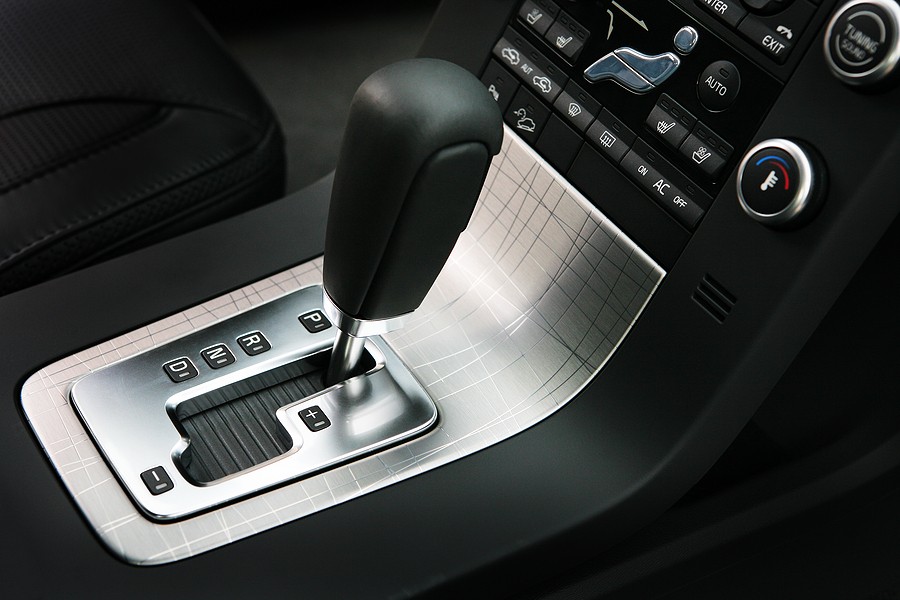
#9. Transmission fluid leaks out when parked overnight
If you notice there's less transmission fluid inside your vehicle than normal after parking it somewhere overnight, it can indicate some problem with your car's transmission system. Fluid stains typically accompany this issue on the ground where the car is left parked for an extended period.
Causes: You should try checking your transmission fluid levels to see if they're within the normal range indicated on your car manual. If not, you need to have your mechanic investigate whether or not any parts are leaking internally before doing any repairs.
Troubleshoot: This issue can be caused by various things, including faulty connections, low transmission fluid levels despite needing top-offs, and incorrectly filled transmissions systems leading to more problems later on.
Fix: Depending on how much it costs for additional repairs, some issues may only need to be corrected with minor details like tightening bolts that hold certain components together. In contrast, others will result in complete overhauls of the entire transmission system.
Costs: You may only need to shell out around $400 for repairs for small leaks. Larger problems can cost anywhere between $800 and upwards of $4,000.
#10. Transmission goes bad over time, causing the car not to accelerate properly
When your vehicle is experiencing issues with its transmission system, it can severely limit how quickly you're able to get up to speed when driving normally on the road.
While some hesitation is normal when accelerating onto highways or other congested areas with lots of traffic, your car should eventually power through so you don't have to put yourself at risk by swerving in and out of lanes trying to keep up with the rest of the cars moving forward.
Troubleshoot: These are common issues to look out for about transmission problems when they occur regularly.
Fix: If your car is running properly after long periods of hard-driving, you should have it checked if the problem occurs again the next time you're driving normally.
Costs: It can be anywhere from around $100 to upwards of $1,000, depending on how much damage has been done internally to the engine and transmission system. The more extensive damages may require replacing various parts such as gears or timing belts, among others.
Repair costs will often vary depending on whether other connections need tightening and who's doing the repairs themselves compared to having a dealership complete necessary work that needs correcting.
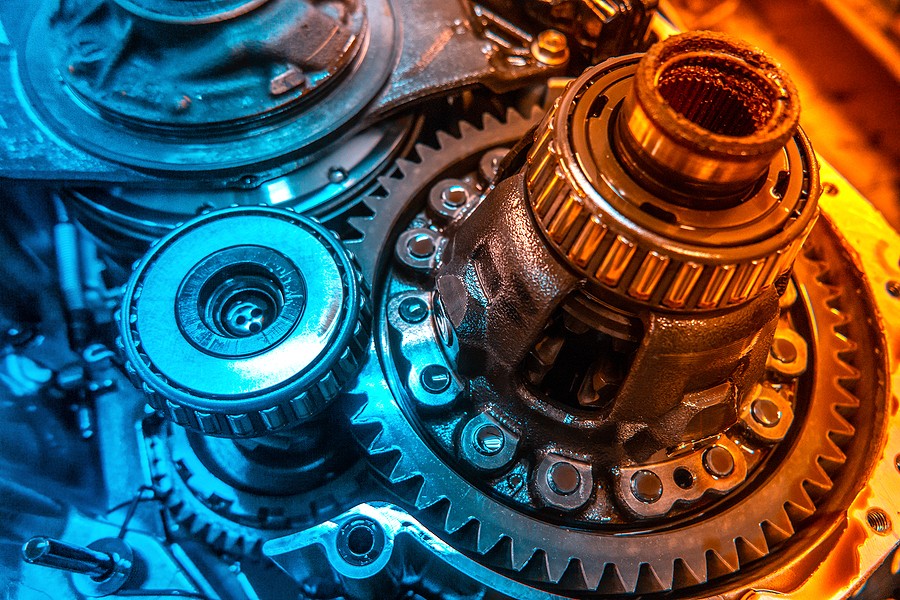
Transmission Problem With Overdrive: Conclusion
If you're experiencing any of the ten problems with transmission overdrive listed in this article, don't hesitate to take your car to a mechanic for further diagnostics.
Many of these issues can be identified and repaired without too much trouble or expense, but it's always best to be safe than sorry when it comes to your vehicle.
Keep in mind that costs may vary depending on the extent of damage done to the engine and transmission system, so be sure to get an estimate before committing to any repairs.

